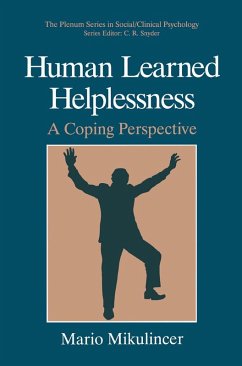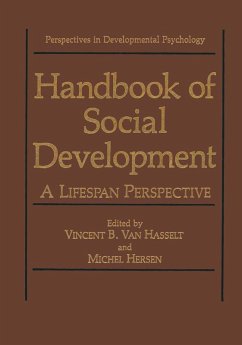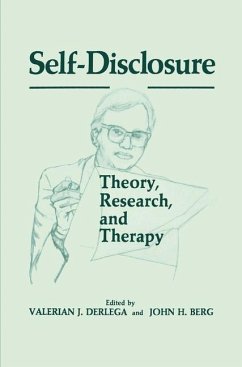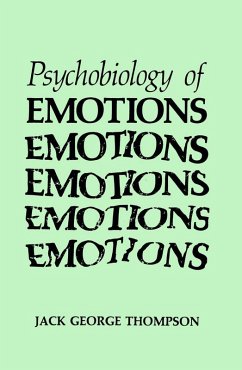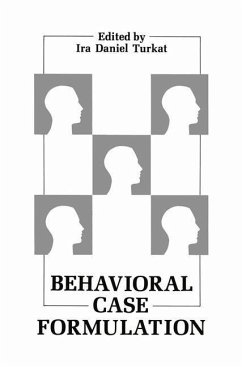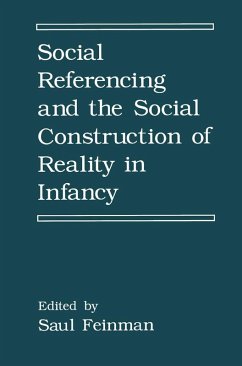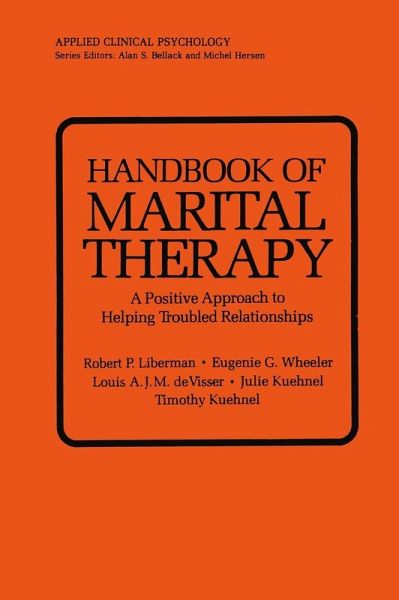
Handbook of Marital Therapy: A Positive Approach to Helping Troubled Relationships (eBook, PDF)
Versandkostenfrei!
Sofort per Download lieferbar
112,95 €
inkl. MwSt.
Weitere Ausgaben:

PAYBACK Punkte
56 °P sammeln!
In the treatment of marital problems, behaviorally oriented and com munication oriented approaches have been in conflict and seen as con trasting and unlikely bed partners. Many therapists, focusing on com munication skills, have felt that behaviorists were too structured and uncaring; on the other hand, behaviorists have considered humanistic therapists as being "touchy-feely," vague, and unfocused. However, in the Handbook of Marital Therapy, Liberman, Wheeler, de Visser, and the Kuehnels have wedded these two potent approaches into an inte grated framework that makes them loving bed partner...
In the treatment of marital problems, behaviorally oriented and com munication oriented approaches have been in conflict and seen as con trasting and unlikely bed partners. Many therapists, focusing on com munication skills, have felt that behaviorists were too structured and uncaring; on the other hand, behaviorists have considered humanistic therapists as being "touchy-feely," vague, and unfocused. However, in the Handbook of Marital Therapy, Liberman, Wheeler, de Visser, and the Kuehnels have wedded these two potent approaches into an inte grated framework that makes them loving bed partners. With over a decade of experience in applying behaviorally ori ented treatment to couples, Liberman and his co-authors have devel oped an educational model that focuses on teaching specific commu nication skills to couples. The communication skills they describe have been used extensively in all types of marital therapy, regardless of the therapist's theoretical orientation. The unique contribution of this book is that the authors provide a step-by-step approach to teaching these communication skills within a behavioral framework. Each chapter guides the therapist through the many issues and problems confronting him or her as a change agent. This highly readable book is enhanced by a liberal use of case exam ples. Emphasis is given to homework and structured sessions that focus on increasing specific communication skills in a sequential manner. The advantages of working with couples in a group setting are dis cussed, and concrete suggestions on how to manage these groups are clearly presented.
Dieser Download kann aus rechtlichen Gründen nur mit Rechnungsadresse in A, B, BG, CY, CZ, D, DK, EW, E, FIN, F, GR, HR, H, IRL, I, LT, L, LR, M, NL, PL, P, R, S, SLO, SK ausgeliefert werden.



